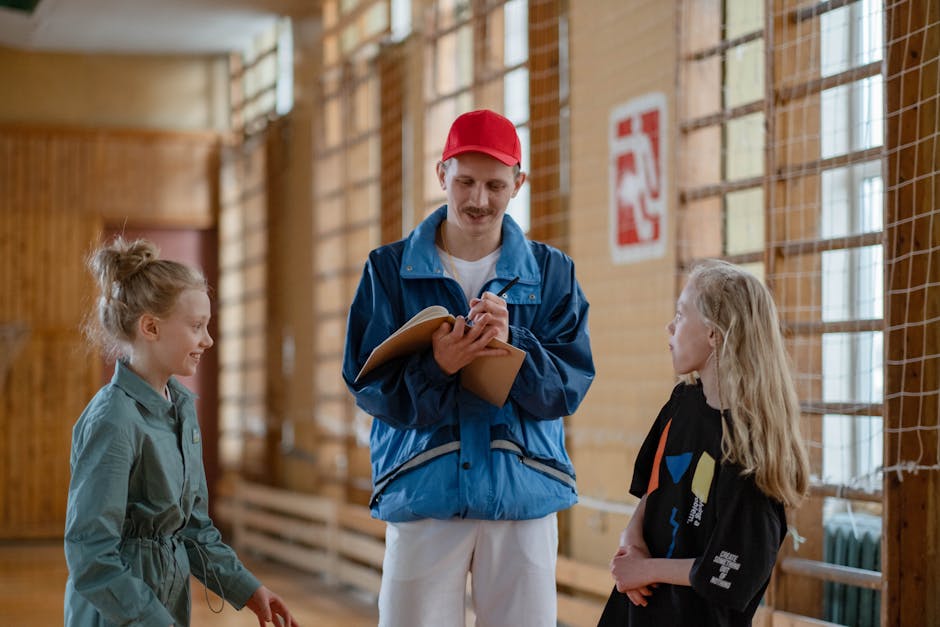Success in sports and recreation hinges on numerous factors, from innate talent and diligent training to strategic planning and unwavering dedication. Yet, woven throughout the fabric of athletic achievement is the often-unsung influence of coaching. A skilled coach acts as more than just an instructor; they are a mentor, strategist, motivator, and confidante, shaping athletes’ physical and mental capabilities to unlock their full potential. This article will explore the multifaceted role coaching plays in fostering success across various sports and recreational activities.
Firstly, coaching provides structured training programs tailored to individual needs and collective goals. A coach’s expertise lies in designing and implementing training regimens that optimize physical conditioning, technical skills, and tactical awareness. This goes beyond simply prescribing exercises; it involves understanding the athlete’s strengths and weaknesses, their physiological limits, and their psychological responses to training. For example, a coach might employ periodization, a method that systematically varies training intensity and volume throughout the year to prevent overtraining and maximize performance at crucial competitions. In team sports, coaches also develop strategies and game plans, analyzing opponents’ weaknesses and devising approaches to exploit them. This strategic planning component directly contributes to a team’s competitive edge.
Beyond the physical aspects, coaching significantly impacts an athlete’s mental fortitude. Elite athletes often face immense pressure, self-doubt, and setbacks. A good coach fosters a positive and supportive environment where athletes can develop resilience, self-belief, and a strong work ethic. This involves providing constructive feedback, addressing individual anxieties, and cultivating a sense of team cohesion. Techniques like goal-setting, visualization, and mindfulness can be employed to enhance mental toughness and improve performance under duress. For instance, a coach might help an athlete manage pre-competition anxiety by teaching relaxation techniques or reframing negative thoughts. This mental coaching aspect is critical for overcoming obstacles and achieving peak performance.
Furthermore, coaching promotes the development of crucial life skills that extend far beyond the sporting arena. Discipline, time management, teamwork, and leadership are all cultivated through the coaching process. Working within a team structure teaches athletes the importance of collaboration, communication, and mutual support. Learning to manage their time effectively to balance training, academics, and personal commitments hones essential organizational skills. Moreover, participation in team leadership roles, whether as a captain or a senior member, fosters valuable leadership qualities, such as decision-making under pressure, motivating others, and delegating tasks effectively. These skills are highly transferable to various aspects of life, contributing to success in professional and personal endeavors.
However, the effectiveness of coaching is intrinsically linked to the coach-athlete relationship. A strong rapport built on mutual trust and respect is essential for optimal development. Coaches need to demonstrate empathy, understanding, and genuine interest in their athletes’ well-being, both on and off the field. Effective communication is vital; coaches must be able to clearly convey instructions, provide constructive criticism, and actively listen to their athletes’ concerns. This open communication fosters a sense of security and allows for a more personalized approach to training and development. A coach who creates a supportive and inclusive environment enables athletes to feel comfortable taking risks, experimenting with new techniques, and pushing their boundaries.
The role of coaching varies across different levels of competition and sports. In recreational settings, coaching might focus more on introducing basic skills, fostering participation, and promoting enjoyment. Coaches might prioritize fun and engagement, focusing on fundamental techniques and building a love for the sport. At higher competitive levels, coaching becomes more specialized and intensive, focusing on fine-tuning skills, developing advanced strategies, and maximizing athletic potential. Coaches might employ advanced technology, such as video analysis and biomechanical assessments, to provide individualized feedback and optimize training. Regardless of the level, the fundamental principles of effective coaching creating a supportive environment, promoting athlete development, and fostering a strong coach-athlete relationship remain constant.
Technology also plays an increasingly significant role in modern coaching practices. Video analysis allows coaches to identify technical flaws and suggest improvements with precision. Wearable technology provides data on an athlete’s performance, such as heart rate, speed, and distance covered, enabling coaches to monitor training loads and prevent injury. Data analytics helps coaches make informed decisions regarding training programs, player selection, and strategic planning. These technological advancements enhance the coach’s ability to personalize training, optimize performance, and monitor athletes’ well-being more effectively.
In conclusion, the role of coaching in achieving success in sports and recreation extends far beyond simply teaching skills and techniques. Effective coaching fosters physical and mental development, promotes valuable life skills, and builds strong coach-athlete relationships. Coaches act as mentors, strategists, and motivators, helping athletes overcome challenges, reach their full potential, and experience the rewards of hard work and dedication. The impact of a skilled and dedicated coach is immeasurable, contributing significantly to the overall success and fulfillment of athletes at all levels. By understanding the multifaceted nature of coaching, we gain a deeper appreciation for its pivotal role in shaping athletic triumph and fostering lifelong growth.
